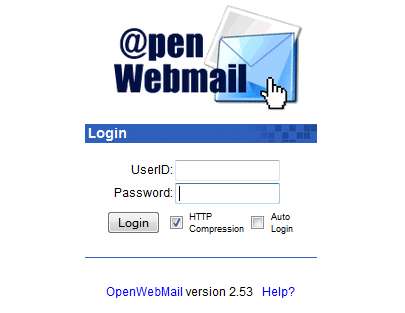How to set up Open WebMail in CentOS
Last updated on August 28, 2020 by Sarmed Rahman
Webmail interface is one of must-have services for any mail server. Most of us are used to native email client software, but what if your favorite client software is not available for any reason? For example, you have left your laptop at home, or your phone's data plan just went dry, or maybe you are just travelling. An alternative way to access a mail service in such cases would be to use the webmail interface of your mail server. As long as there is web browser with Internet connectivity, you should be able to use the webmail interface.
Open WebMail is a lightweight, open-source webmail for Linux. Despite its old-school interface, Open WebMail provides a range of useful features:
- Custom folders
- Mail filters
- Changing passwords
- Automatic mail reply (vacation/out of office responders)
- Contacts
- Support for large mailboxes
Open WebMail has its own repository for CentOS/RHEL/Fedora. Package for Debian is available in their site as well. However, as of this writing, the package for Debian does not work on Ubuntu due to dependencies issues.
Installing Open WebMail on CentOS
As usual, adding Repoforge repository is always recommended. The official repository for Open WebMail is added as well.
# cd /etc/yum.repos.d # wget http://openwebmail.org/openwebmail/download/redhat/rpm/release/openwebmail.repo
Now, Open WebMail can be easily set up using yum command.
# yum install openwebmail perl-CGI httpd
Configuring Open WebMail
First of all, the file /var/www/cgi-bin/openwebmail/etc/dbm.conf is updated with the following parameters.
# vim /var/www/cgi-bin/openwebmail/etc/dbm.conf
## the previous values are overwritten ## dbm_ext .pag dbmopen_ext none dbmopen_haslock no
Then Open WebMail can be initialized with an installed script as follows.
# /var/www/cgi-bin/openwebmail/openwebmail-tool.pl --init
The index.html file for Open WebMail is also prepared by using a soft link.
# ln -s /var/www/data/openwebmail/redirect.html /var/www/html/index.html
Optional Step:
The domain name for the mail server is defined manually to avoid any future mistakes in the @domain part of the mail address.
# vim /var/www/cgi-bin/openwebmail/etc/openwebmail.conf
domainnames example.tst
The Apache web server is restarted.
# service httpd restart # chkconfig httpd on
Finally, Open WebMail can be accessed by pointing the browser to the URL of the mail server: http://mail.example.tst or http://<IP-address-of-mail-server>
Open WebMail in Action
Some screenshots of Open WebMail are provided below.
Open WebMail login page:

Open WebMail interface:

Open WebMail preferences:

Troubleshooting Open WebMail
Open WebMail may generate errors or behave abnormally if specific versions of some Perl packages are not installed. Fortunately, the packages are available in Open WebMail repository and are very easy to install. The following demonstrates how to install problematic Perl packages.
A folder is created to store the packages. It could be any folder.
# mkdir /var/www/data/openwebmail/packages # cd /var/www/data/openwebmail/packages
Packages are downloaded.
# wget http://openwebmail.org/openwebmail/download/packages/CGI.pm-3.05.tar.gz # wget http://openwebmail.org/openwebmail/download/packages/MIME-Base64-3.01.tar.gz # wget http://openwebmail.org/openwebmail/download/packages/Text-Iconv-1.2.tar.gz
Install CGI:
# tar zxvf CGI.pm-3.05.tar.gz # cd CGI.pm-3.05 # perl Makefile.PL; make; make install
Install MIME:
# tar zxvf MIME-Base64-3.01.tar.gz # cd MIME-Base64-3.01 # perl Makefile.PL; make; make install
Install Text-Iconv:
# tar zxvf Text-Iconv-1.2.tar.gz # cd Text-Iconv-1.2 # perl Makefile.PL; make; make install
To sum up, Open WebMail interface may be a bit old school, but it is a complete package pre-built with often needed features. Besides, the installation process is easy, and the interface is very lightweight. Open WebMail is certainly a worthy candidate when a simple webmail interface is needed.
Hope this helps.
Support Xmodulo
This website is made possible by minimal ads and your gracious donation via PayPal or credit card
Please note that this article is published by Xmodulo.com under a Creative Commons Attribution-ShareAlike 3.0 Unported License. If you would like to use the whole or any part of this article, you need to cite this web page at Xmodulo.com as the original source.
Xmodulo © 2021 ‒ About ‒ Write for Us ‒ Feed ‒ Powered by DigitalOcean

